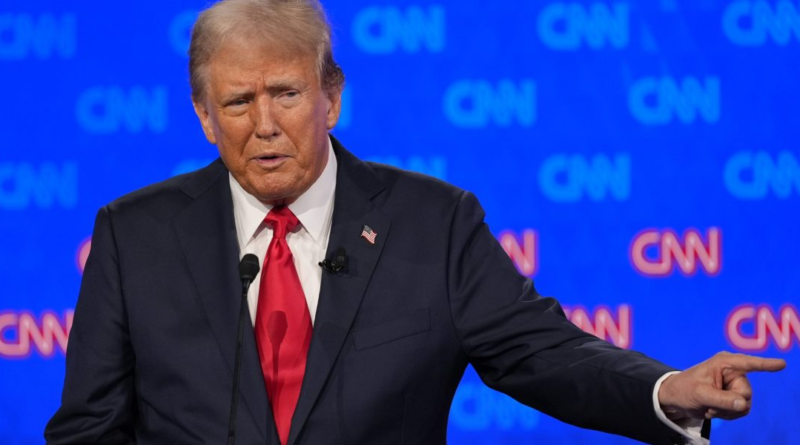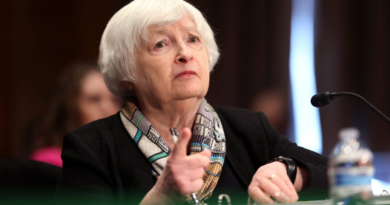Shares of Trump Media’s volatile meme stock jump after first presidential debate, swinging the pendulum back after hush money trial
Shares of Trump Media, the owner of social networking site Truth Social, jumped 5% at the opening bell Friday after the first U.S. presidential debate, with some investors believing it could become a bigger mouthpiece for the former president if he is re-elected.
President Joe Biden and former President Donald Trump clashed Thursday evening on topics including abortion, immigration and the Jan. 6, 2021 attack on the U.S. Capitol.
Biden’s performance was largely seen as uneven, particularly early on. He tried repeatedly to confront Trump, who countered Biden’s criticism by leaning into falsehoods about the economy, illegal immigration and his role in the Jan. 6 insurrection.
In political futures markets, where investors can put money on the political fates of candidates, Biden’s odds of remaining the Democratic party’s nominee slid 29% after the debate.
Citi analysts said Friday there may be increased interest in Trump Media & Technology based on news headlines following the debate.
Shares of Trump Media & Technology have been buffeted during Trump’s run for president and swung wildly a day after Trump’s conviction in his hush money trial.
A New York jury found Trump guilty of falsifying business records in a scheme to illegally influence the 2016 election through hush money payments to a porn actor who said the two had sex.
The stock, which trades under the ticker symbol “DJT,” has been extraordinarily volatile since its debut in late March, joining the group of meme stocks that are prone to ricochet from highs to lows as small-pocketed investors attempt to catch an upward momentum swing at the right time.
The stock has tripled this year, in the process frequently making double-digit percentage moves either higher or lower on a single day. It peaked at nearly $80 in intraday trading on March 26. For context, the S&P 500 is up almost 10% year to date.
Trump Media & Technology reported in May that it lost more than $300 million last quarter, according to its first earnings report as a publicly traded company.




